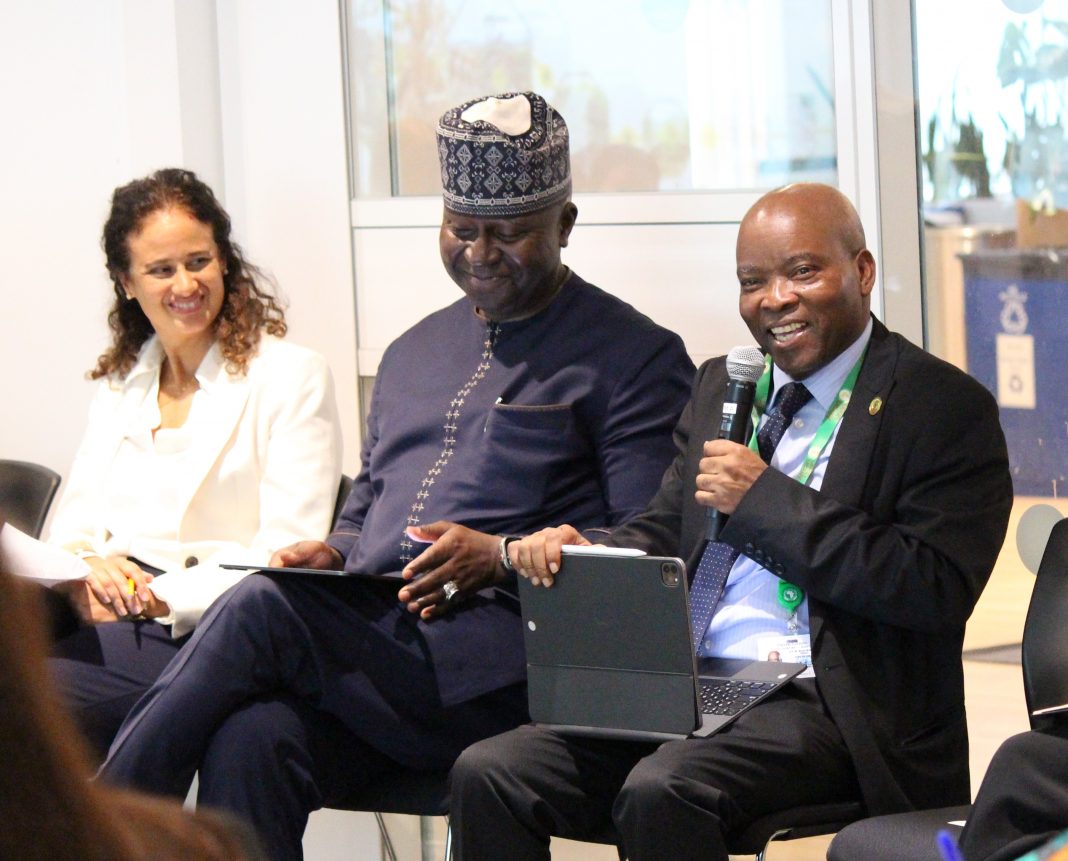By Samantha Linda
African leaders are calling for significant investment in agricultural innovation to unlock the continent’s full potential and drive economic growth.
This call was made during a high-level roundtable hosted by the African Agricultural Technology Foundation (AATF) on the sidelines of the 80th United Nations General Assembly (UNGA80) in New York, USA.
Africa still faces issues with low agricultural production, food insecurity, and a lack of investment in agri-innovation despite its large amount of fertile land, young population, and plentiful water resources. Progress has also been hampered by climate change, antiquated farming methods, and restricted access to funding.
Modern technology that could increase yields, lower post-harvest losses, and make farming a profitable enterprise have been unavailable to African farmers for decades, especially smallholders.
Moses Vilakati, the African Union Commission’s (AUC) Commissioner for Agriculture, Rural Development, Blue Economy, and Sustainable Development, stressed during the roundtable that Africa has to make agriculture viable and aspirational, particularly for its young people.
According to Vilakati, “African technology, adapted to our realities and propelled by our innovators, holds the key to the future of African agriculture.”
He urged governments and the private sector to invest in digital platforms, Artificial Intelligence (AI), and the Internet of Things (IoT) to modernize farming systems and make them climate-smart and sustainable.
Similarly, Prof. Muhammadou M. O. Kah, AATF Board Trustee and Ambassador of The Gambia to the UN in Geneva, called for rapid adoption of precision technologies and digital farm management systems that would transform agriculture into one of the most attractive frontiers for investment.
“Investing in advanced, climate-smart agricultural techniques offers a high-impact opportunity to drive Africa’s food security and growth,” said Prof. Kah.
The leaders advocated for enabling environments—through policy reforms, harmonized regulations, and better access to financing—to attract both local and foreign investors into Africa’s agricultural sector.
Over the past two decades, AATF’s work across 32 African countries demonstrates the power of innovation to change lives. The foundation has facilitated access to improved seeds, biotechnology, and mechanization tools, enabling millions of smallholder farmers to increase productivity and income.
Projects supported by AATF have led to the development of drought-tolerant maize, pest-resistant cowpea, and high-yield rice varieties, proving that locally tailored solutions can deliver measurable impact.
At the roundtable, Martin Davies, Global Head of Nuveen Natural Capital, confirmed that investors are recognizing the potential of Africa’s agriculture. He stressed that access to capital remains the key constraint, but initiatives like AATF’s partnership with investment platforms and governments are beginning to bridge that gap.
The discussion revealed that agricultural transformation requires more than technology—it needs strong partnerships, capacity building, and inclusive policies.
Lessons learned from AATF’s initiatives show that when farmers receive training, quality inputs, and market access, they can triple productivity and enhance food security in their communities. The replicability of these models is high across Sub-Saharan Africa, especially when aligned with government policies and private investment.
However, leaders also cautioned that innovation without proper infrastructure, finance, and extension services will not achieve the desired impact. Bridging the digital divide, especially in remote areas, remains a significant limitation.
“Africa’s transformation journey must include investments in knowledge, policy, and infrastructure, not just technology,” said Vilakati.
Despite progress, challenges persist. Access to capital continues to limit smallholders and agri-startups. Many countries still lack coherent regulatory frameworks to support the adoption of agricultural technologies such as genetically improved seeds or AI-driven farm systems.
Additionally, climate change, pests, and volatile markets continue to pose significant threats to food systems. Without long-term government commitment and policy alignment, even the most advanced technologies will struggle to achieve scale.
As Davies noted, policy and regulatory harmonization are essential for building investor confidence and ensuring sustained agricultural transformation.
The AATF-led dialogue at UNGA80 highlights that Africa’s agricultural renaissance is within reach but only if the continent fully invests in innovation, youth empowerment, and enabling environments. With collaboration between governments, private investors, research institutions, and farmers, Africa can transform its agricultural landscape from subsistence to sustainability proving that African problems can be solved through African-led solutions.






